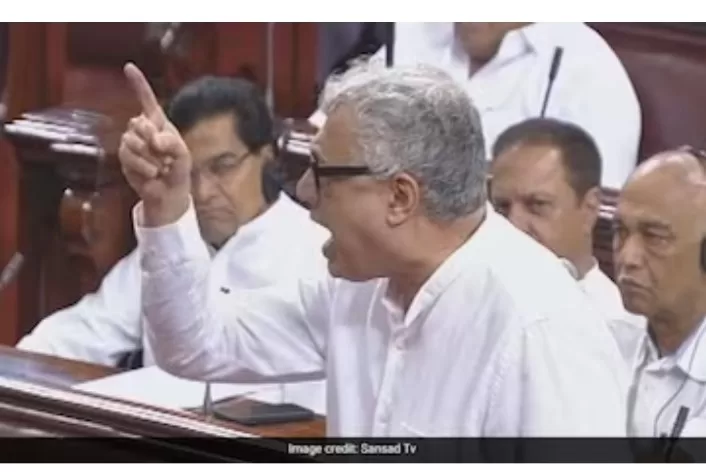Trinamool Congress’s Derek O’Brien presented the Centre with a trio of options regarding gender representation in parliament and state assemblies during his discourse on the women’s quota bill in the Rajya Sabha. He urged the government to either introduce the bill in 2024, allocate a women’s quota within the Rajya Sabha, or compel the BJP to have one-third of their members elected as women.
O’Brien’s argument lay in his belief that the BJP lacked a genuine commitment to women’s empowerment, contending that merely offering electoral tickets was insufficient. He supported his assertion with two illustrative instances.
“In 2021, prior to the Bengal assembly elections, men in the opposition employed financial clout, media influence, physical prowess, and misogynistic rhetoric to ridicule the state’s Chief Minister. They chanted ‘Didi O Didi’ and even physically harmed her. Yet, she responded with grace, much like a woman. The people of Bengal delivered their response,” remarked O’Brien in a jab at Prime Minister Narendra Modi.
“After the election, what ensued? Bengal’s health, finance, land, industry, and commerce ministries are all led by women. Nevertheless, not one woman has been appointed Chief Minister in any of the 16 NDA states,” he stated.
O’Brien cited another instance from a news report, quoting Uttar Pradesh Chief Minister Yogi Adityanath as suggesting that men attain god-like status upon exhibiting feminine qualities, while women who adopt masculine traits are deemed “rakshas (demons).”
“You can construct new edifices, but the transformation must first occur within your mentality,” he concluded.
The long-awaited women’s reservation bill, which proposes to allot 33 percent of seats in the Lok Sabha and state assemblies to women, finally received approval from the Lok Sabha the previous day, garnering widespread support with only two MPs opposing it.
The bill was presented in the Rajya Sabha today. While the Opposition concurs with the notion of reservation, they balk at the government’s proposed timeline.
The reservation can only be enacted following a census and delimitation exercise, which, under Article 82 of the Constitution, may not occur until after 2026. This implies that the implementation could be postponed until 2029 or later. Although the government has indicated that the census and delimitation process will commence following next year’s general elections, expediting the quota’s implementation may necessitate fresh legislation.







